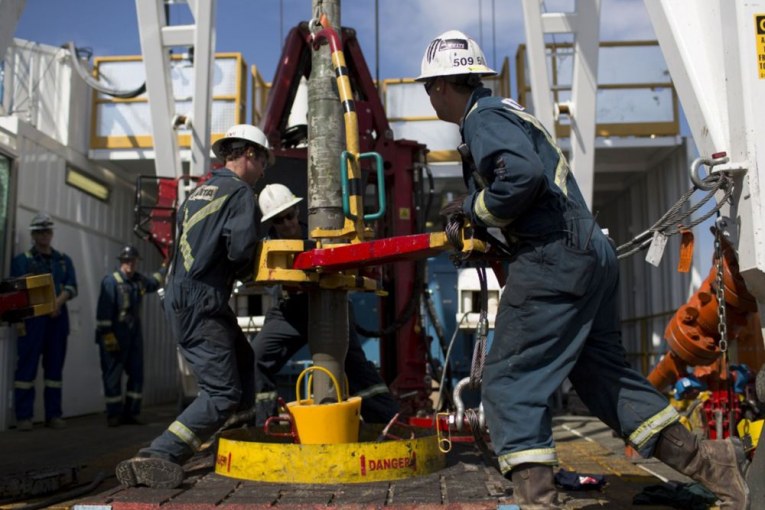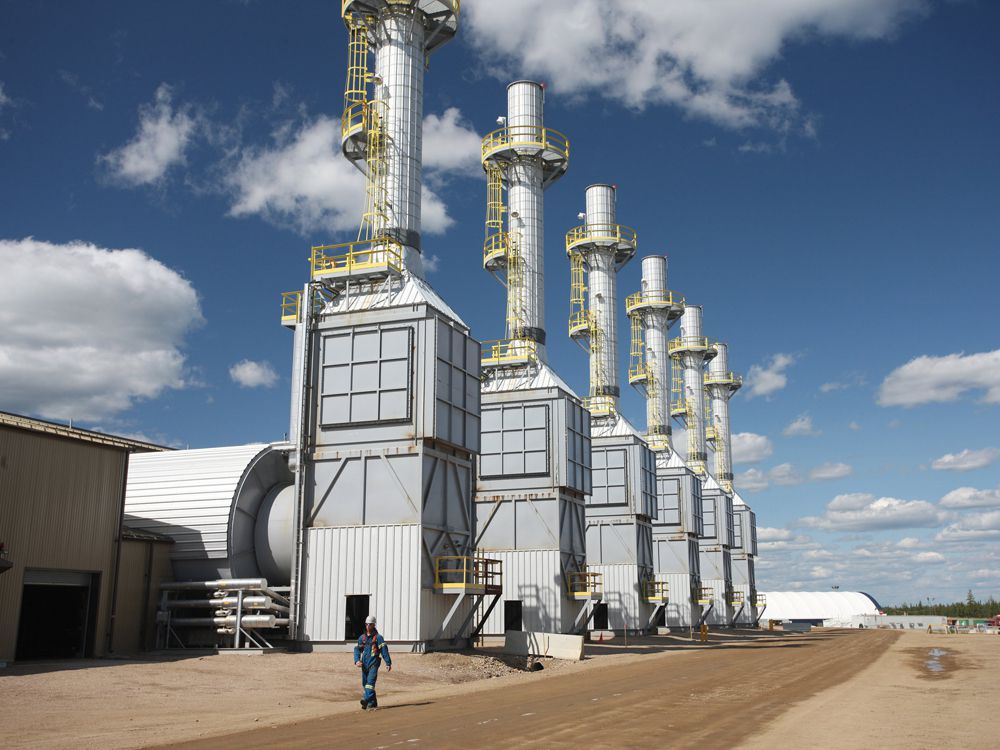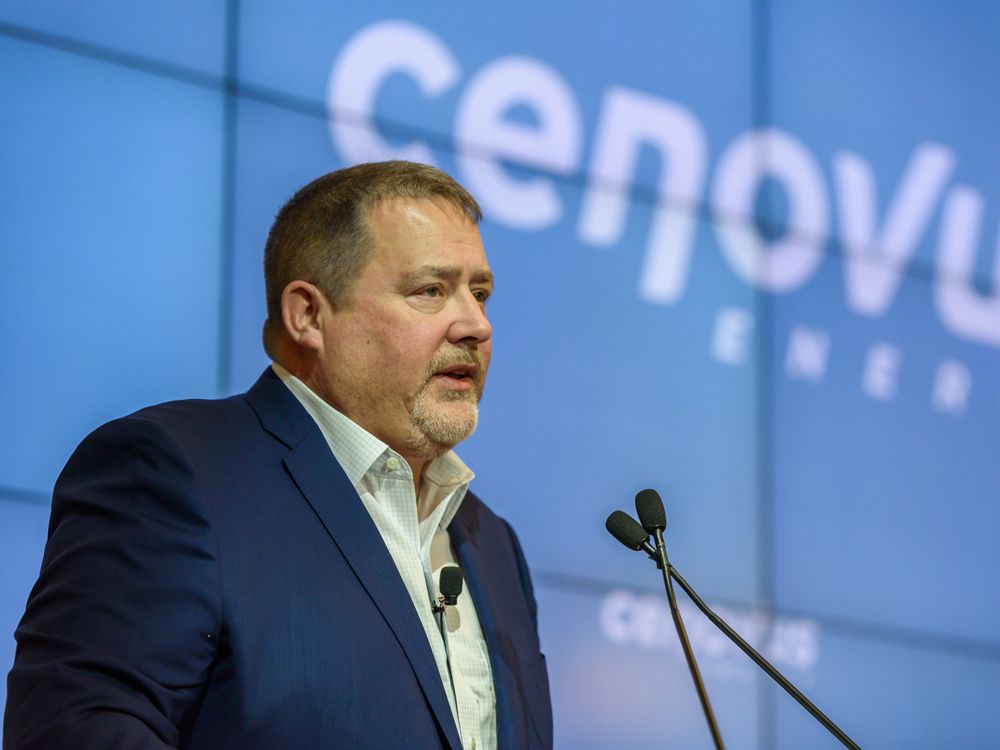
By his own admission, the most frustrating period in Alex Pourbaix’s career was being forced to add a billion dollars of debt when oil prices crashed this spring.
“After all the work we had done to get our balance sheet in shape, to see this company pack on debt in that very low-price environment was just profoundly frustrating to me,” said the CEO of Cenovus Energy Inc. as he described the motivation for Cenovus’ $10.2-billion friendly takeover of competitor Husky Energy Inc. to analysts on a call on Sunday.
But the new entity will see Cenovus taking on Husky’s $5.2 billion debt, to add to Cenovus’s own $8 billion long-term debt.
Despite that, Pourbaix believes the deal will end up improving the company’s credit metrics and deleverage the company in the long run, as Husky’s refining and upgrading assets will turn the new Cenovus Energy Inc. into one of Canada’s largest downstream companies.
While investors reacted negatively, taking 8.4 per cent off Cenovus’ stock price on Monday to $4.47 per share, credit ratings agencies agreed with Pourbaix’s assessment, with Moody’s Investors Service placing Cenovus’ credit rating under review for an upgrade.
“What you have to recognize is that the management team saw being exposed to heavy oil and bitumen is something to overcome,” said Paresh Chari, Moody’s senior analyst, in an interview Monday. “When those two (Pourbaix and CFO Jon McKenzie) took over the company, their focus was on reducing the debt on their balance sheet to help them mitigate this kind of commodity price volatility,” Chari said.
Similarly, DBRS Morningstar revised Cenovus’ outlook to positive on Monday, citing improved size and scale of the combined company as well as the downstream integration provided by Husky’s upgraders and refineries in Alberta, Wisconsin and Ohio.
Fitch Ratings also revised the Calgary-based company’s outlook to positive, noting that the deal reflects “several credit-enhancing features,” including the potential for $1.2 billion in cost-savings and giving the company the ability to organically lower its gross debt balance. The company said approximately $600 million in savings is likely to come from workforce expenses, implying there could be many layoffs, though both Cenovus and Husky management declined to provide numbers on how many people could lose their jobs.
Phil Skolnick, an analyst at Eight Capital, noted that the transaction was well thought out and not motivated “by a rush to be relevant.”

The deal also marks a new Cenovus under Pourbaix, who took over the company in 2017 after the company had been struggling to digest a $17.7 billion deal to acquire most of U.S. energy giant ConocoPhillips’ Canadian assets. Cenovus’ previous CEO Brain Ferguson left shortly after the deal was announced. The stock has fallen nearly by two-thirds since that acquisition in March 2017.
Pourbaix, 54, had been battle-hardened as chief operating officer of TC Energy, where he was responsible for overseeing major energy infrastructure projects, before leaving the pipelines business to run Cenovus.
Since Pourbaix joined Cenovus, he has built a team that includes former Husky chief financial officer McKenzie, who will be elevated to the role of chief operating officer given his familiarity with the assets of both companies.
Analysts say that Pourbaix has shown a financially conservative streak since he joined heavily-indebted Cenovus in 2017, and has channelled the heavy-oil producer’s profits to paying down debt.
“One of the biggest challenges for this company over (my time here) has been our relatively higher level of exposure to Alberta heavy oil prices,” Pourbaix said.
But Pourbaix’s team has been either stuck with bad hedges or been on the wrong side of volatile swings in oil prices and was eyeing a more integrated business model with better access to refineries for the company’s heavy oil, which remains depressed due to lack of pipeline capacity.
Then, earlier this year, Cenovus entered the COVID-19 pandemic largely without hedges and bore the full brunt of the record-setting oil price collapse in the spring.
In previous media interviews, Pourbaix has frequently discussed a desire to build Cenovus into a more integrated oil producer. Acquiring multiple refineries and oilsands upgrading capacity effectively gives the company permanent physical hedges and minimizes the company’s exposure to Western Canada Select price volatility. The company believes the merger with Husky will allow the combined entity to refine 70 per cent of its oil production in-house.
“For most of the time that I’ve been in this company, there just wasn’t an option to acquire material upgrading or refining for anything that was remotely within our snack bracket,” Pourbaix said. “I think the extraordinary thing about this deal, along with many other positive characteristics, is in one fell swoop, this deal will almost completely remove our exposure to WTI/WCS differentials.”

The deal also shields Cenovus from a new campaign by the anti-oilsands movement under a possible Joe Biden presidency, especially as the former U.S. vice-president has come out against the Keystone XL pipeline project, a key conduit between Alberta and heavy oil refineries in the Gulf Coast.
The Husky deal means that pipeline risk “has been materially decreased,” Pourbaix said on a conference call Sunday. “I’ve been talking to investors for three years, telling people I was optimistic the pipes were going to come.”
Equity markets, on the other hand, were less enthusiastic about the deal. Some equity investors had bought Cenovus shares to gain exposure to WCS oil prices, which are expected to improve as oil production in the U.S. declines and as new pipelines are built to connect Albertan oil producers with new markets, Eight Capital’s Skolnick said of the company’s Monday selloff.
“They don’t fit into my positive WCS thematic,” he said, noting that bullish oil investors looking for exposure to WCS will now need to consider other pure-play oilsands companies.
However, in the long run, Skolnick said he thinks an integrated Cenovus-Husky will be more attractive to a broader range of investors. In particular, credit ratings upgrades could allow Cenovus to attract more institutional investors, enable the company to strike better pipeline transportation deals and improve their cost of borrowing.
“They are a much better company now, and I can’t ignore that,” Skolnick said.
Whether the new Cenovus will compare more favourably against the remaining large-cap Canadian oil and gas peers such as Suncor Energy Inc. and Canadian Natural Resources Ltd. is an open question.
Raymond James analyst Chris Cox wrote in a Monday research note that “company would still lag (CNRL and Suncor),” on account of the better balance sheets, lower oil price break-evens and sheer size, “just not as substantially as before.”
Similarly, Citi Research analyst Prashant Rao said the deal is “clearly a win” for Husky but “leaves us scratching our heads” for Cenovus.
“While we get management’s through-cycle/integration industrial logic for the deal on a longer-term basis, today’s announcement dampens the 12-18 month share price upside potential versus what we reckoned for a standalone (Cenovus),” Rao wrote in a note.
You can read more of the news on source
